Iran Claims Large ‘Zionist’ Terror Network Uncovered
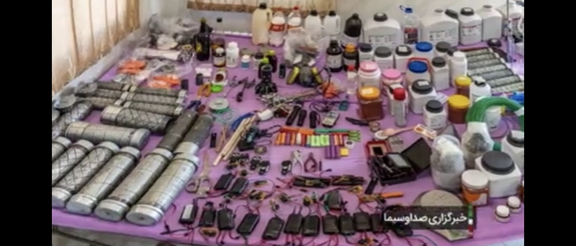
Iran claims to have smashed a network of “terrorists” across six provinces, whose handlers are in Denmark and the Netherlands, according to the government's news agency, IRNA.

Iran claims to have smashed a network of “terrorists” across six provinces, whose handlers are in Denmark and the Netherlands, according to the government's news agency, IRNA.
In a lengthy article, quoting Iranian intelligence organizations, IRNA says that the conspiracy’s aim was to launch terror attacks during last week’s Muharram Islamic Shiite mourning events, marked by days of public gatherings in streets and mosques.
The report, blaming “Zionists” for organizing the network, claims that 43 bomb attacks were planned, including the bombing of IRGC General Qassem Soleimani’s mausoleum in Kerman — the architect of Iran’s military and intelligence network across the Middle East, killed in a US drone strike in January 2020 ordered by then-president Donald Trump.
Praising the quality of Iran's "intelligence aristocracy", the discovery it says, "is a sign of the undeniable authority of this institution in thwarting terrorist plans, and on the other hand, it shows the loss of the intelligence authority of the Zionist regime".
IRNA, a mouthpiece for the regime's top brass, claimed that the nature of the terrorists' employers has been known for years. "No one doubts the Zionist regime's [Israel] covert and hidden involvement in this matter," it claimed, threatening that the actions would reap repercussions for Israel's allies in Europe.
IRNA went on to claim that a large quantity of material related to bomb-making was uncovered in safe houses, along with weapons and accessories for street protests.
The Iranian regime occasionally makes claims of arresting terrorists and spies -- especially citing alleged Israeli intelligence agents — and uncovering caches of weapons and explosives, but rarely provides concrete details or names and affiliations of the supposed saboteurs. Court appearances of detainees or news about trials are rare and verification of these claims are impossible.
It is the second time in a matter of days that the regime has issued veiled threats to Denmark. Only last week, Iranian officials warned Denmark not to allow any acts of desecrating the Quran after several people burned the Muslim holy book in Sweden.
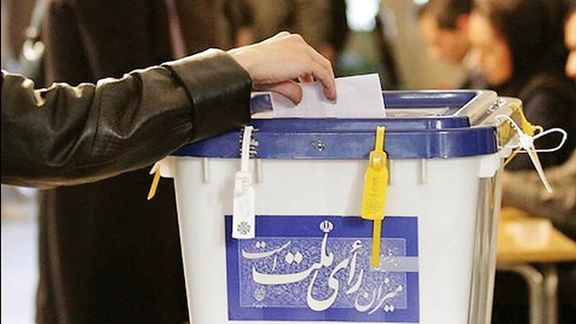
Politicians in Iran voice concern that barring reformist and non-conservative candidates will lead to a low turnout and lackluster parliamentary elections next year.
Some officials including former interior minister and deputy intelligence minister Mostafa Pourmohammadi are also deeply concerned about the adverse impact of the country's dire economic situation on many voters who are simply dissatisfied with all regime politicians.
Pourmohammadi has said that the people are disgruntled, and this could lead to voter apathy as Iranian conservatives have been grudgingly acknowledging that the economic crisis gripping Iran for the past five years has worsened under hardliner president Ebrahim Raisi and as a result the regime’s legitimacy might suffer.
Referring to Supreme Leader Ali Khamenei's call for a high-turnout election in March 2024, Pourmohammadi said in an interview with IRGC-linked Javan newspaper on Saturday that voters cannot be forced to go to the polls. The interview was widely carried by other news media in Iran including Didban website.
He said, "People will vote if they are happy about the current situation and have high hopes about the future." Meanwhile he blamed various state organizations for popular dissatisfaction, but specifically singled out the presidential administration.
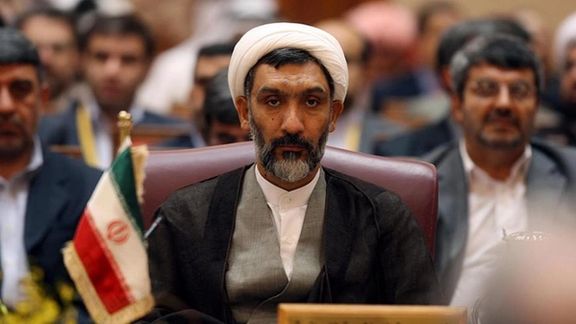
Pourmohammadi added that promises made by state officials and later forgotten, have deeply annoyed Iranians. He further added that the government and the ruling clerics should correct their behavior and stop blaming foreign enemies for the problems they have created themselves and failed to solve.
Pourmohammadi, a conservative cleric himself, maintained that young Iranians have distanced themselves from the ruling class. Conservative politicians and political parties should understand that winning a low turnout election is in fact a failure and will lead to further loss of trust between the people and the Iranian rulers.
The former minister also called for allowing “moderates” to run in the elections. Meanwhile referring to some reformist figures who have called for boycotting the elections if they are not allowed to run, Pourmohammadi advised them to avoid confrontational rhetoric. He also called on conservatives not to attack those who have talked about boycotting the elections. "Let us stress on our common points instead," he said.
The role of the Guardian Council, a constitutional watchdog has become highly controversial after it disqualified hundreds of relatively moderate candidates in the 2020 parliamentary vote and again key leading figures in the 2021 presidential election. As a result, hardliners established total control of the legislature and are dominating all positions in the presidential administration.
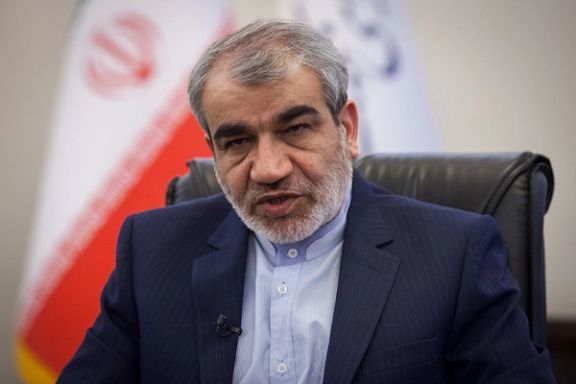
In another development, former Guardian Council Spokesman Abbas Ali Kadkhodai who is still a leading member of the Council has said that "When a candidate is disqualified by the Guardian Council, the reason(s) for his or her disqualification should be given to them in a confidential manner." But, many disqualified candidates have said they never received a clear explanation. Most served in important posts in the past and could not understand why they were barred from running.
Referring to the changes made to the Election Law recently, many Iranian politicians including former lawmaker Mahmoud Sadeghi have said that the changes have given the Guardian Council a more influential role in elections. He said based on the amendment made to the Election Law, the Guardian Council's supervision continues until the endorsement of new MPs credentials. Meanwhile, the Guardian Council is now represented in the State and local Security Council meetings about the elections.

A former deputy of Iran’s judiciary, released from prison last year after serving only a fraction of his sentence, has been taking his illicitly gained assets abroad.
Iran International has obtained a long list of Akbar Tabari’s properties, such as large shopping malls, houses, large land holdings, apartments and shops, that were not even mentioned during the numerous hearing sessions held after he and 21 others were arrested in 2019 for running a bribery ring inside the regime’s judiciary department.
Almost all the people implicated in the case were released before completing their sentences. Late in June, Gholamali Mohammadi, the head of Iran's Prisons Organization, announced that Tabari -- the highest-ranking judiciary official in the case -- was released from prison after serving just 45 months of a 31-year prison term, posting a bail of 3 trillion rials ($6 million).
Before being arrested in July 2019, Tabari held senior financial and executive positions within the Iranian judiciary for nearly 20 years. He was eventually sentenced to 31 years in prison for leading a bribery network and receiving multiple bribes and for money laundering.
According to Iran International’s investigative journalist Mojtaba Pourmohsen, Tabari continued his illegal activities from inside the prison as the court sessions were being held.
Our sources said that several of his associates have been converting his assets into foreign currencies and sending to Portugal and the Canadian city of Vancouver, adding that authorities turn a blind eye -- or facilitate -- his affairs to protect Chief Justice Gholamhossein Mohseni Ejei and Gholam-Hossein Esmaeili, a senior justice and former spokesman of the Judiciary who is now the chief of staff of President Ebrahim Raisi. Tabari was removed from his posts in the judiciary only seven days after Ebrahim Raisi was appointed as Chief Justice in March 2019.
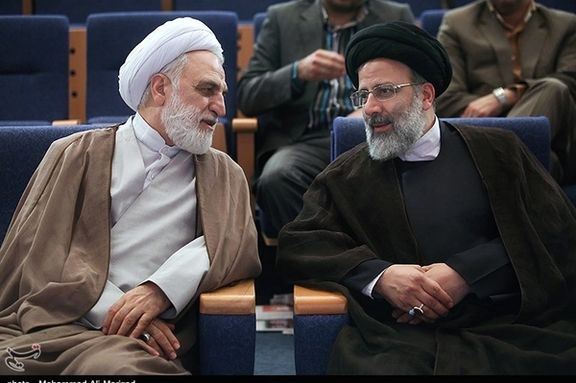
Delving into evidence pertaining to the list of Tabari’s assets would have opened the pandora’s box and revealed the deep corruption in the highest levels of the country’s judiciary, our sources said, justifying the reason why Supreme Leader Ali Khamenei gave the green not to investigate the case thoroughly. Another piece of evidence that was buried would have led to further investigation about Sadeq Larijani, another former Chief Justice and the current chairman of Expediency Discernment Council -- an advisory body appointed by the Supreme Leader.
One of our sources claimed that the known facts and figures about Tabari’s case are only the tip of the iceberg in the judiciary’s corruption that may include a large number of senior officials of the country’s judicial system.
Mohammadi, the head of Iran's Prisons Organization, said in the late June TV interview that Tabari's release was the result of a "judicial authority's decision within legal parameters," a reference to Mohseni-Ejei, the current head of the judiciary.
Tabari's release cast aspersions about the fairness of Iran's judiciary in high-profile cases, showing preferential treatment to former regime officials and those who can buy their way out of jail. While regime opponents are subjected to immediate secret trials and severe punishment, including those arrested during the recent nationwide protests, the process of reviewing the charges of officials and their affiliates is usually slow, and their sentences are usually suspended after a short period.
Another question raised following Tabari’s release was how a former government employee can post a $6 million bail when monthly salaries of top officials is around $1,000. According to official documents of the case, a copy of which was obtained by Iran International, well-known Iranian tycoon Mohammad (Dariush) Afrashtehpour paid the bail money. Afrashtehpour is one of the so-called ‘major debtors’ to state banks who has been involved in a plethora of financial schemes under several administrations.
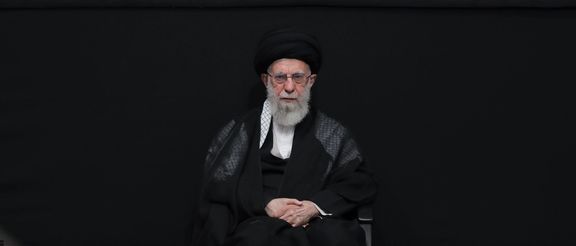
Reformists In Iran warn that the ultraconservative Paydari party wants to manipulate the election of a council that is tasked with selecting the next Supreme Leader.
Amid concerns about Paydari's attempts to engineer the upcoming parliamentary elections, a leading reformist party in Tehran reported on Saturday that the hardliner group also aims to extend its "purification" project to the Assembly of Experts (AoE), the constitutional body that would select Ali Khamenei’s successor.
Etemad newspaper wrote that radical conservatives have started garnering support for their own hardline conservative candidates for the next election of the Assembly of Experts which is to be held alongside the parliamentary elections in March 2024.
The purification project, referring to hardliners monopolizing government institutions, began with the presidential and parliamentary elections in 2021 and 2020, when relatively moderate candidates were barred from competing. Now there are suspicions that hardliners plan to repeat the same tactic in 2024, to make sure that all the members of the parliament come from the same political faction and appoint their men to the Assembly of experts.
Currently, two seminary associations, as well as moderates and Paydari are likely to compete in the AoE elections, but the influential Paydari's intervention could potentially change the number and combination of the contestants.
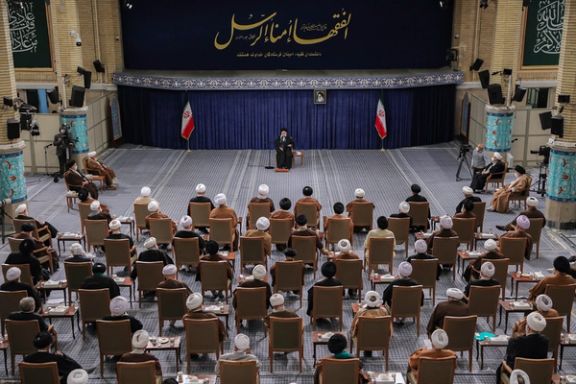
At the same time, centrist politician Gholamhossein Karbaschi, the former leader of the Executives of Construction Party, warned that hardliners are likely to arrange the disqualification of moderates and reformists in the parliamentary election in a bid to form an all-conservative parliament.
Karbaschi further warned that this might substantially curtail participation in the upcoming elections as it effectively restricts competition to candidates affiliated to the same hardline faction. Voters will have little interest or incentive to go to the polls when they know the outcome.
Karbaschi said: "It looks like that hardliners have not been quite happy with the current conservative dominated Majles and wish to introduce more ‘revolutionary’ candidates.” In the new jargon of Iranian reformists and moderate conservatives, the term "revolutionary" is used to characterize reckless ultraconservatives with little if any political experience.
He reiterated that the situation will not change dramatically if the future parliament is more "revolutionary" than the current one. "It is all down to the Guardian Council not to reject candidates and to the Interior Ministry to hold a timely and healthy election," Karbaschi said and added, “We cannot predict the future, but what hardliners are saying is not promising."
Meanwhile, conservative political analyst Javad Aryamanesh told reporters in Tehran that some reformist groups are likely to form a coalition with former Majles Speaker Ali Larijani, a relatively moderate conservative. Aryamanesh reiterated that Larijani is also willing to work with moderate reformists.
However, he noted that some reformist politicians might not take part in the upcoming elections. Aryanmanesh argued that the expected low turnout in March is not related only to a lack of political choice for voters, but is partly due to profound dissatisfaction with the current economic crisis and hyperinflation.
"The masses of Iranians are unhappy about the current situation which is marked by poverty, corruption, discrimination and injustice, and this is far more important in determining the fate of the elections than the combination of the political parties," Aryanmanesh stressed.
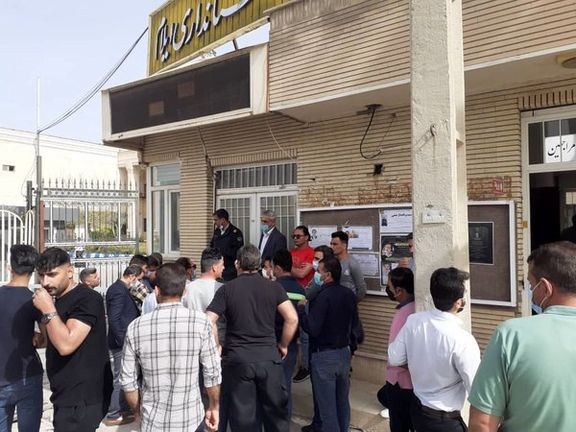
The suicide of a worker at Iran's Chovar Petrochemical Company due to his dismissal has brought attention to the dire situation within the firm.
According to a report by ILNA news agency in Tehran, Heydar Mohseni, a married father of two, took his own life on Thursday after receiving a dismissal order following 18 years of service at the petrochemical complex in the southwestern province of Ilam. This marks the fourth such incident within the past 12 months.
The news of Mohseni's suicide prompted a gathering of workers at the petrochemical area and the Chovar governorate. As a consequence, the Chovar security council restricted the entry of several petrochemical managers into the workplace. Nevertheless, some workers expressed concern that those responsible for Mohseni's dismissal have yet to face repercussions.
In a similar incident in December, Arash Tabarrork, a contracted worker at the plant, committed suicide after ingesting aluminum phosphide after he was prohibited from entering Chovar Petrochemical Company. Furthermore, in August 2022, Mohammad Mansouri and Ali Mohammad Karimi, both young workers, also took their lives within a 24-hour period.
Reports indicate that employees at Chovar have to endure hard working conditions and receive very low wages. This, compounded with worsening economic situation in Iran has contributed to unbearable livelihood problems and have driven at least 10 individuals to end their lives between June and August 2022.
A notable issue highlighted by ILNA is the absence of an independent trade union organization for the over 1000 workers at Chovar Petrochemical, most of whom are contracted employees, meaning that they lack job security, insurance and benefits. Their appeals to the labor ministry and governorship have not yielded positive outcomes.
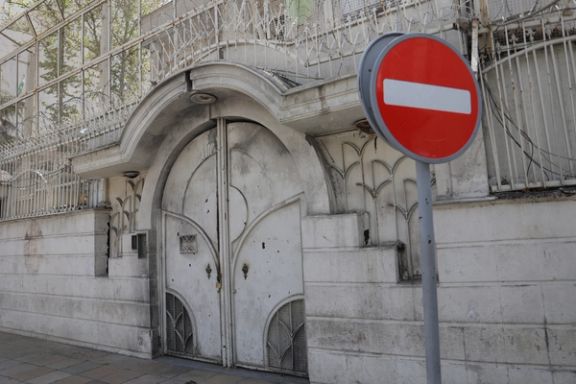
The anticipated reopening of the Saudi Embassy in Tehran, as part of an agreement to restore diplomatic relations, has faced further delays.
The agreement, signed in March in Beijing, stipulated that the two countries would reopen their embassies within two months. However, the timeline for the reopening of the Saudi embassy in Tehran remains unclear. Alireza Enayati, the designated Iranian ambassador to Riyadh, said that the Saudi embassy will reopen but "at a time they see fit."
Enayati expressed his observations on Saudi Arabia's approach, stating, "what we see from the notes and actions of Saudi Arabia is that the country is trying to open its embassy when it suits them." Despite not yet submitting his credentials to the Saudi authorities after being appointed as ambassador, Enayati remains hopeful for progress.
The Iranian Embassy in Saudi Arabia was reopened in mid-June, following a one-month delay, marking the restoration of diplomatic relations after seven years of closure.
In response to repeated postponements, some media outlets speculated that the Saudi embassy might reopen after the religious holiday of Eid al-Adha in late June. However, the Saudi authorities have yet to offer any official explanation regarding the possible reopening of their embassy in Tehran.
Recent reports indicated the deployment of Saudi diplomats to the Espinas Palace Hotel in Tehran's north. Jahan Sanat newspaper highlighted the hotel's strategic advantage for embassy personnel and diplomats, as it includes a helipad that enhances their security during potential emergencies or attacks.
However, the Iranian Foreign Ministry spokesperson has raised concerns about the potential establishment of relations between Saudi Arabia and Israel and how that may impact Iran. These comments come in line with comments from US President Joe Biden who indicated that an agreement on the normalization of relations between Saudi Arabia and Israel is likely.